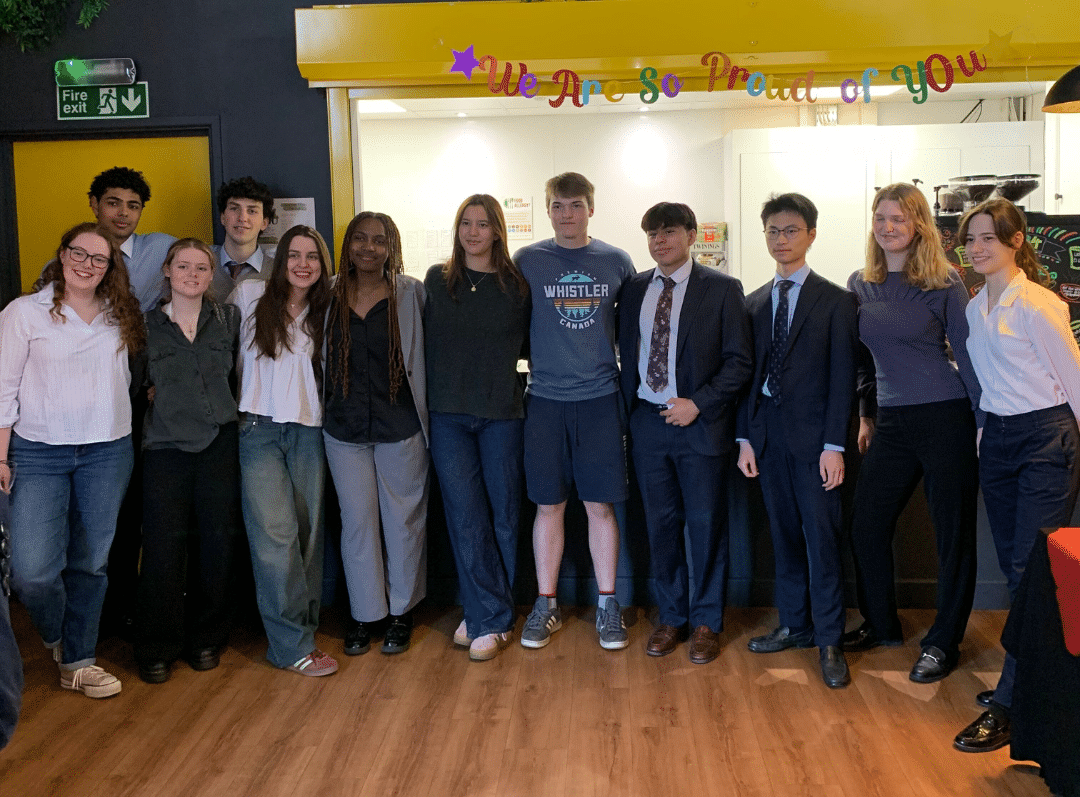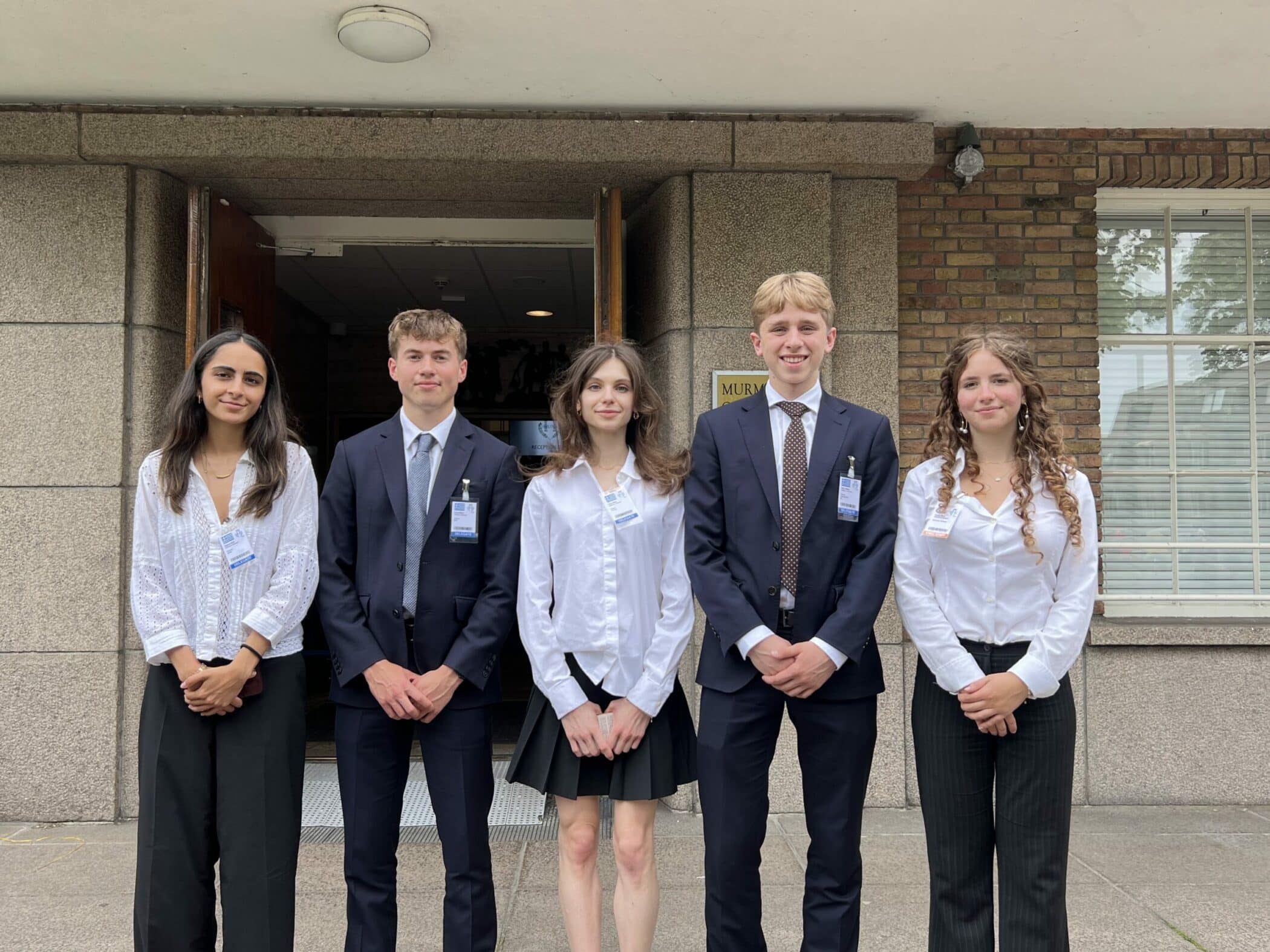Every Wednesday in the Autumn and Spring Terms, the Upper School hosts a lecture series called the Torch Lectures. Each week, two departments deliver a lecture, seminar or social event which will expand pupils’ knowledge and understanding of the subject.
Pupils do not need to be studying the subject to attend the Torch Lecture, however, all students studying the ‘major’ subject that week are expected to attend.
Torch Lecture highlights from this term include:
Psychology – The Psychology of Magic
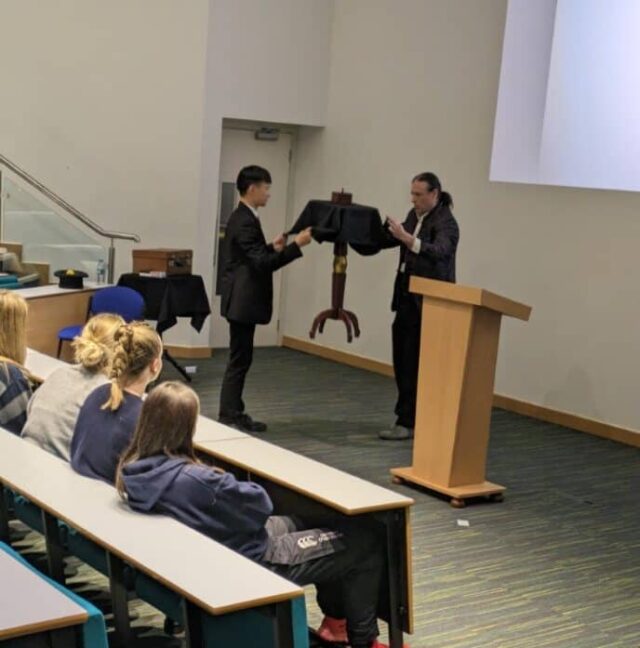
This Psychology Torch Lecture saw The Great Adamos share insights into the Psychology behind Magic, here is a brief insight into the show that tries not to reveal a Magician’s secrets – you really needed to see the magic with your own eyes!
Within the first five minutes of the show, red balls had appeared from seemingly nowhere and a glass of water (with a slice of lemon) was pulled out of a folded white paper bag – students and staff were hooked. Adamos began by explaining the similarities between Psychology and Magic in that we are both observing participants, with magicians using Classical Conditioning, inattentional blindness and knowledge of human memory to enable their tricks. The concept of Dual Processing was introduced to explain the basic premise behind a magician’s work. This explains that our thinking can be broken into two systems. System one is fast, intuitive, requires little cognitive effort and is prone to errors whereas system two is slower, consciously aware of its surroundings and allows us to make complex decisions considering the consequences and outcomes. One of these systems is played upon by magicians to encourage misdirection, but I’ll let you figure that out. A final discussion on crowd psychology enabled students to refresh their knowledge of Normative Social Influence and Compliance whilst understanding the underlying mechanics of magic and the importance of having the audience on board.
The first two volunteers experienced the classic multiplying sponge ball trick where one red ball was turned into five or six by the end of the trick as they kept appearing from student’s hands. Despite an explanation, the look of shock really showed the beauty of magic. The second group of volunteers experienced card tricks, with Adamos able to ‘guess’ the correct cards students had chosen. A further explanation and break-down of the trick in slow-motion allowed us to understand the subtle elements to the trick, but still left us in shock when Adamos pulled out a card from his wallet, with the student’s name, her chosen 4 of diamonds with the Oakham School logo on the back of the card! An amazing trick that led to a practical discussion around the illusion of free will, and with barely insight into how he executed his reveal. Two more volunteers joined the stage for cup and ball tricks, in which they studiously watched the cups and his hands for quick movements. Nothing could prepare us for the lemon and lime that appeared under the cup, and the students are adamant they saw nothing.
Lastly, an explanation behind mindreading tricks fascinated us all, which were incredibly obvious and logic (once explained). Adamos was able to perfectly demonstrate what happens when a trick doesn’t go to plan and how to rectify this without the audience knowing – or perhaps this is what we were led to believe!? The final trick left all students questioning magic as Adamos and our final volunteer made a table fly around the Wilson Auditorium. Speechless!
Geography – Visiting talks from Loughborough University
Over 50 Upper School geographers gathered together to be introduced to the world of university Geography by two of the academic staff from the Geography Department at Loughborough University. With a quarter of the Geography Department here at Oakham being Loughborough alumni, they are well represented! The talk started with Dr Edwin Baines talking about how diverse university Geography is, represented by their department’s ‘wall of curiosity’ – a selection of ‘things’ which represent the many varied interests the lecturers and researchers have from figures representing the garment trade in Ghana to rocks from Iceland to a Balotelli football shirt relating to the impacts on African nations from their young footballers playing for topflight clubs overseas.
Dr Baines then outlined why he thinks that waterfalls and their formation are the single most important process on land, as not only are they iconic but they provide constant change and far-reaching impacts. He also outlined how, despite lots of study, we know relatively little about how they erode the landscapes and the process involved.
Dr Savannah Worne then outlined her recent research here in Rutland, looking at how phosphate levels have increased in the Rutland Water from changes in water treatment locally which have ultimately led to increased toxic algal blooms which affect many parts of the reservoirs, especially in the summer.
Teacher of Geography Duncan Wright said “Whilst we work hard to give geographers here a well-rounded coverage of Geography, it’s fantastic to be able to give our A level and IB students a window into what university level Geography looks like, and helping them to appreciate that the teaching that they receive at university stems from the research interests that lecturers and fellows have. Tonight’s talks were fantastic in giving our upper school geographers a feel for university Geography and we’re incredibly grateful for Edwin and Savannah visiting us.
Art – A visit from Fiona Grady
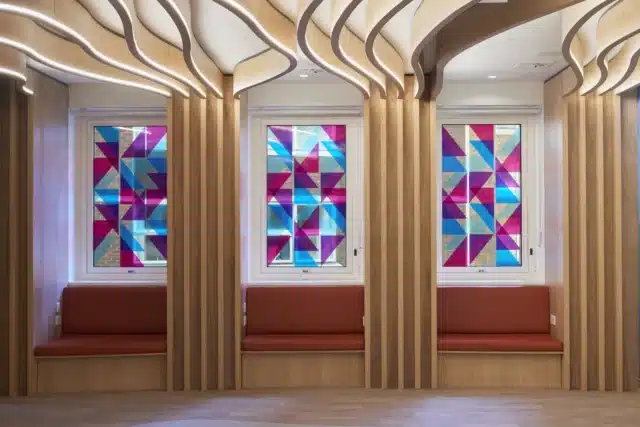
Artwork by Fiona Grady
Form 6 and 7 Art and Critical and Contextual Studies students had an insightful talk from artist Fiona Grady.
Fiona creates colourful and dynamic geometric artworks including architectural interventions that transform their setting. She utilises light, colour, shape, surface and scale to intervene in environments, drawing our attention to the passing of time and helping us to reconsider these spaces.
Fiona spoke to the students about her art practice, influences and research methods, sharing projects to explain the process of being commissioned for professional development. In addition, she discussed curatorial processes in relation to her own work. Fiona also shared with the students some of the materials she uses to make her work. She set the students a brief to consider how to respond to a commission.
It was a really inspiring talk that gave the students an insight into the working life of an artist.
Classics – Design Classics’ Museum Display
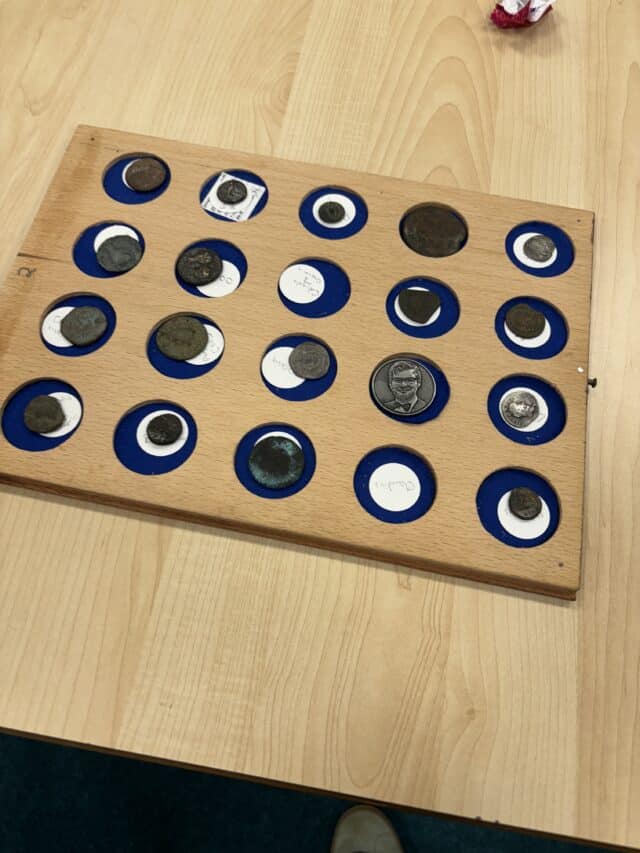
Pupils in Classics (Latin, Greek and Classical Civilisation A-level and IB) alongside interested pupils from other subjects, gathered in the Classics Department to review, handle, learn about and finally display the department’s collection of Classical antiquities.
Pupils got the chance to hold items ranging in date from about 1700 to about 2500 years old, and contributed in designing and installing the School’s new display helping shape what passing pupils see and understand about the ancient world.
The collection has now moved out from storage and onto display at the top of the Ashburton building, where pupils can view it as they walk past.
Head of Classics, Dr Leveritt also spoke a little bit about his experience working in two museums in his previous career, and life in this sector.




